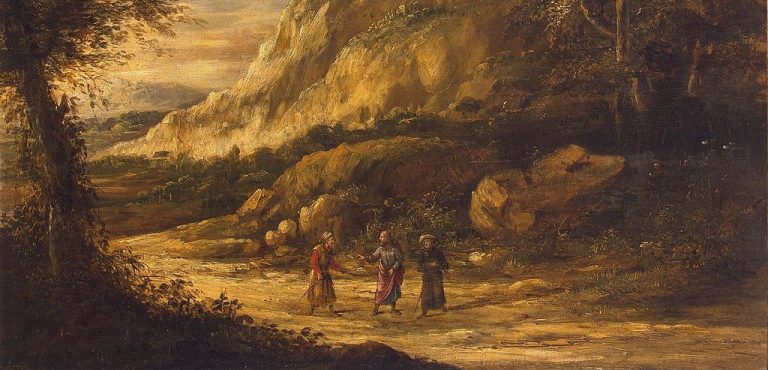By Fr. Boniface Hicks, OSB
Fr. Boniface Hicks, OSB, is a Benedictine monk of St. Vincent Archabbey in Latrobe, Pennsylvania. He has provided spiritual direction for many men and women, including married couples, seminarians, consecrated religious, and priests. He is the co-author, with Fr. Thomas Acklin, OSB, of Spiritual Direction: A Guide for Sharing the Father’s Love.

This day is traditionally known as Emmaus Day, due to the Gospel reading for Mass in the lectionary prior to Vatican II. The Gospel from Luke 24 of the two disciples on the road to Emmaus was proclaimed in the Mass. In our monastic world it also took on a character of some solemn relaxation including making long walks together. This is very fitting following the intense days of the Triduum.
I have celebrated the Triduum in parishes on occasion, but I love being in the monastery for the whole Triduum. My favorite part about it is that all of life orients around the celebration of the liturgies. In addition to the eucharistic liturgies, of course we also celebrate the Divine Office. The meals, too, become a kind of extension of the liturgical prayer. Furthermore, our campus, which is normally very busy, slows down as the students and other staff and faculty leave and everything focuses on the prayer of the Church. Although we often do a little work and I continue to have some spiritual direction meetings or directed retreats, the whole atmosphere is filled with the Triduum.
That provides a very beautiful experience, but also a very intense experience. We tend to stay in-doors for the whole Triduum and our times of communal and private prayer are extended. Our efforts to worship God and enter into the Sacred Mysteries require some perspiration as well as inspiration at times. We really enter into a distinct reality that is more mystery and everyday experience. It is intense enough that it requires a special effort to emerge from it back into the more mundane realities that we have to handle in our daily lives.
This is where Emmaus Day comes to our aid. After the long, glorious, intense liturgies of the Triduum, our Mass on Easter Monday is solemn and full, with Easter music, incense, beautiful vestments, the smell of Easter flowers and chanting, but it is still a daily Mass. We are not in a rush, but we are not celebrating Easter Sunday with a full Church either. It has a slightly subdued quality that helps the transition from the intensity of Easter to the rest of Easter Monday. Easter food still covers our tables in the refectory, but it is not the full spread of Easter Sunday dinner. And the schedule is relaxed with our college and seminary still closed and most of the employees away.
Additionally, we often take some time for long walks together. After being in-doors for several days, it feels good to stay out in the sun (my memories of Easter Monday all have warm weather!) It also feels good to share our experiences of the Triduum with each other. This is a form of mystagogical reflection and is a lost art in our Church. We need this time to reflect on how we entered into the celebrations, to acknowledge what words and sacred symbols spoke to us and to recover any lights we received that were eclipsed by subsequent activities. This is a precious opportunity to go deeper in our spiritual lives and also to deepen our relationships with the brother monks. Like the two disciples on the road to Emmaus, we can process what happened and Jesus appears in our midst, guiding and sharing our conversation.
Although the Gospel reading for Easter Monday in the Novus Ordo lectionary is no longer the account of the disciples on the road to Emmaus, we can still make it an Emmaus Day. We remain in the glow of the Easter mysteries as we also gently transition that experience into the rest of our lives.













